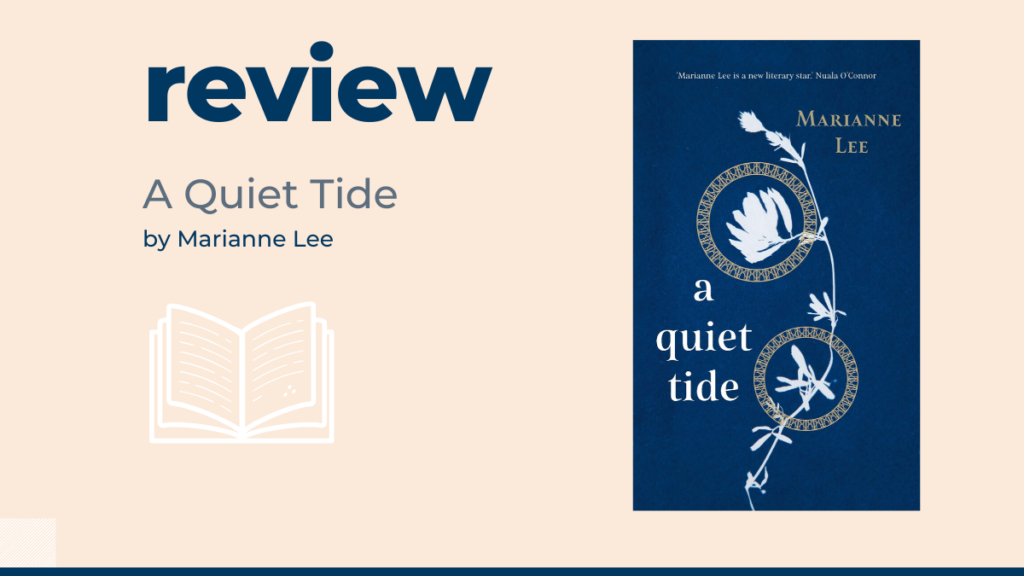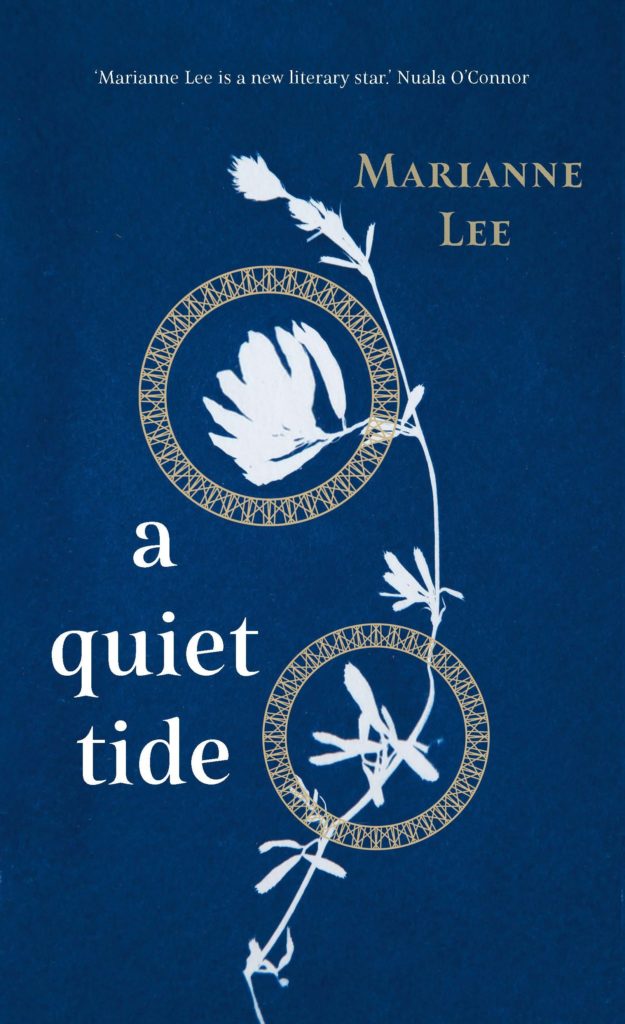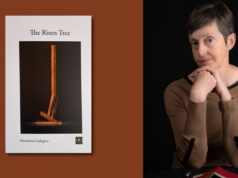
A Quiet Tide
by Marianne Lee | New Island | 394pp | €14.95 pb | 9781848407541 |May 2020
review by Patricia O’Reilly
A Quiet Tide marks the début of Irish writer Marianne Lee. Set in the early 1800s, this gem of a book is a fictionalised account of the life of Irish botanist Ellen Hutchins. After boarding school her brother Emanuel arranges a position for Ellen as governess/companion with the Stokes family in Harcourt Street, Dublin. Dr Stokes introduces her to the world of botany and to her cousin Tom, who is studying to be a doctor at Trinity. Initially, botany is what binds them but slowly a delicate sense of a romance emerges. This is stymied when her brother orders her to return to Ballylickey House, the family home outside Bantry, to care for their ailing mother and crippled brother.

Ellen is both aware and reluctantly accepting of the powerlessness of women, expected to be obedient and without say in their lives. While she is not one for ‘drawing room chatter, elaborate and insubstantial as lace’, she is fulfilled by her interest in botany. On returning to her home she develops sustaining relationships with her brother Jack and mother Leonora, as well as their loyal servants, and she discovers a richness and variety of botanical life in the surrounding countryside. Wandering alone, ill-dressed for the weather and terrain—wearing a pair of her brother’s boots, her skirts hitched high—she risks life and limb in acquiring samples. She sets up a room as her study where she identifies, saves, catalogues and captures her specimens for posterity in watercolour, as well as sharing her findings and corresponding with like-minded botanists.
Delicate from childhood, she succumbs to various bouts of fevers and headaches while successfully taking over the running of the household, working in harmony with their few servants, creating a kitchen garden, growing and preserving much of the produce for their table—gooseberry jam being a firm favourite.
Some locals regard the Hutchins family with distrust. There’s mutterings about the Whiteboys and involvement with Wolfe Tone—Tone’s choice of Bantry as a landing place for a proposed invasion being considered suspicious—and it’s rumoured that, perhaps, as Ellen is ‘a blow-in from Dublin’, she might be a spy.
Her reputation as a botanist and as a collector and collator of multiple varieties of seaweeds grows and spreads. The required modesty of the times battles with Ellen’s wish for recognition of her work. She believes ‘a woman’s reputation is fragile’. But, encouraged by Tom, Leonora and Jack, she agrees to be identified. She is in regular correspondence with her mentor Dr Stokes, as well as Dawson Turner from Yarmouth, a banker by profession but in his heart a botanist.
She hears less frequently from her cousin Tom, until he arrives on an unexpected visit. Together they forage for botanical samples and a few tender moments almost happen but the right words aren’t spoken and he leaves. His correspondence dwindles until a letter with ‘five colourless lines that communicated the most profound change in his circumstances’. He has married. When he later visits Ballylickey it is to tell her that Emanuel plans to take over the house and to evict her and her mother. Again, there’s that sense of unspoken emotions.
As her reputation spreads, callers arrive in Bantry seeking to make her acquaintance. She introduces them to the landscape and shoreline, shares her cataloguing with them and they are duly entertained at table, receiving typical Irish hospitality. The ending is sad—Emanuel lays claim to the family home and forces Ellen and Leonora to leave. Leonora dies shortly afterwards and Ellen succumbs to one of the fevers that has plagued her life and dies aged 29.
Ellen Hutchins is a woman ahead of her time with ability and talent, yet bowed down by missed opportunities and the social traditions of the times. She is brought to life, exquisitely formed, by Marianne Lee, who was discovered by New Island Books at the 2019 Irish Writers Centre Fair, known fondly as the Dragons’ Den for writers.
Lee’s detailed research, with a plethora of Latin names, never takes from Ellen, who steps from the pages as a dutiful daughter and sister, a good friend and a caring house guest, and the other well-formed characters who people the story.
This is a gem of a book, exquisitely written with an Austen delicacy of prose. It abounds with similes—‘hair shone like the sleek pelt of some wild creature’ and ‘voices rose and fell like the rattle of nesting starlings’—as well as metaphors: ‘chickens, their pink legs shrieking in excitement’ and birthing had left her ‘hollow as a burst seed pod’.
Patricia O’Reilly
***
Patricia O’Reilly was born in Dublin. She writes fiction and non-fiction, and teaches writing in UCD, the Irish Writers’ Centre, literary festivals and elsewhere.













